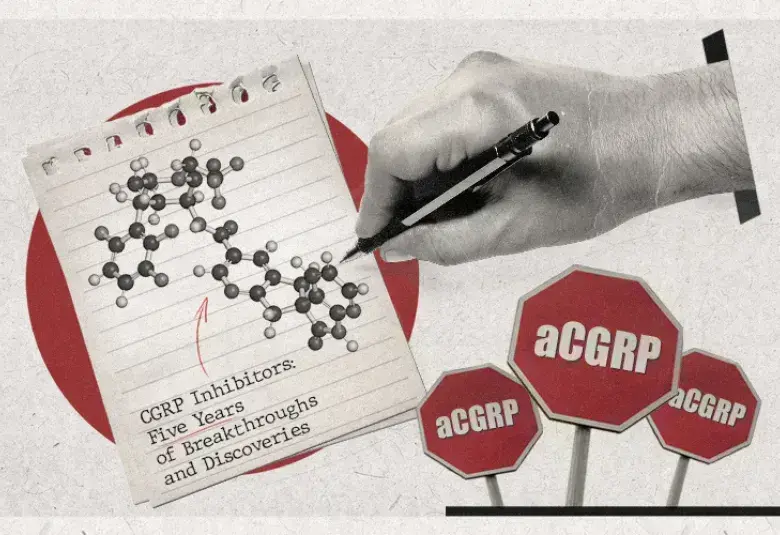Emotional blunting is often described as detachment, inability to feel, and reduction of responsiveness. It is commonly experienced by patients with major depressive disorder (MDD), and has a substantial negative impact on all aspects of functioning not only during treatment for an acute episode, but also in the remission phase. During an oral poster presentation titled ‘Lived Experience of Emotional Blunting in Canadian Patients with Major Depressive Disorder and its Impact on Functioning and Quality of Life,’ Dr. Silvia Albanez, PhD from Lundbeck Canada presented the findings from a Canadian subanalysis of a global survey investigating the impact of emotional blunting on functioning and quality of life from the patients’ perspective. In a related poster presentation titled ‘Canadian Patient and Physician Perceptions of Lived Experience of Emotional Blunting in Major Depressive Disorder,’ Dr. Oloruntoba Oluboka from the University of Calgary focused on the healthcare providers’ perceptions of the impact of emotional blunting on patients.
Emotional blunting has been described as the inability to feel positive and negative emotions, detachment, and reduced emotional responsiveness. Patients experiencing emotional blunting describe it as feeling “emotionally numb.”1 This makes emotional blunting broader than anhedonia, which is defined as the inability to experience pleasure. 1 Another key difference is that anhedonia is one of the core symptoms of MDD whereas emotional blunting is often reported as a side effect of treatment with selective serotonin reuptake inhibitors (SSRIs) and serotonin norepinephrine reuptake inhibitors (SNRIs). Indeed, 40% to 60% of MDD patients treated with these antidepressants have reported some degree of emotional blunting.1 Despite the prevalence of emotional blunting associated with MDD treatment, there is relatively little evidence on the lived experience of patients experiencing emotional blunting and its impact on functioning or quality of life.
Emotional blunting has been described as an inability to experience positive and negative emotions, detachment, and reduced emotional responsiveness
Lived experience of emotional blunting and its impact on patients with MDD
A multi-country patient survey conducted in Spain, Brazil and Canada between April and May 2021 examined the impact of emotional blunting on functioning and quality of life in adults with MDD from both the patients’ and healthcare providers' perspectives. In a subanalysis of 251 Canadian patients taking antidepressant therapy who self-reported emotional blunting in the past 6 weeks, 73% of patients in an acute depressive episode rated their emotional blunting as extremely severe. Strikingly, nearly one in five patients (19%) who were in symptomatic remission rated emotional blunting as extremely severe, suggesting that emotional blunting may persist even when core symptoms of depression have remitted. The presence of emotional blunting also had a negative effect on treatment adherence, with 32% of patients admitting that they were considering stopping their antidepressant treatment – or had already stopped it – because of emotional blunting.
One in three patients was considering stopping – or had already stopped – their antidepressant because of emotional blunting
One of the key objectives of the survey was to assess the impact of emotional blunting on patients’ functioning (assessed by the Functional Assessment Screening Tool (FAST)), and on quality of life(assessed by the World Health Organization Well-being Index (WHO-5)). Although patients in the acute phase of MDD were more functionally impaired than patients in the remission phase, there was nonetheless a consistent negative impact of emotional blunting observed across all domains of functioning. Similar results were observed using the WHO-5, with emotional blunting negatively impacting overall quality of life as well as individual domains including social life, family life, and functioning at work.
Emotional blunting significantly impairs all domains of functioning and quality of life in both acute depression and in remission
Physicians tend to underestimate the severity and impact of emotional blunting on patients with MDD
The global survey also included 130 Canadian psychiatrists and primary care physicians, who answered questions related to the latest patients they had treated for acute or remitted MDD. Questions explored topics about emotional blunting, including it’s impact on patients’ functioning and quality of life. Physicians estimated that 30% of their patients experienced severe emotional blunting, compared to 41% reported from the patient cohort. For patients in the acute phase, physicians estimated that emotional blunting significantly impacted aspects of daily functioning, such as work, family and social life, to a lesser extent (34-42%) than reported by patients themselves (46-57%). Physicians also reported that a lower proportion of patients were experiencing emotional blunting due to their antidepressant compared to patients (33% vs 43%, respectively). Moreover, physicians estimated that emotional blunting was the reason for patients to consider stopping treatment in only 18% of cases, compared to 32% of patients who were surveyed. These findings suggest a disconnect between patients’ lived experience and physicians’ perceptions of emotional blunting and it’s impact on daily functioning.
Patients and physicians have different perceptions of the severity and impact of emotional blunting in MDD
Dr. Albanez and Dr. Oluboka stressed that it is important to raise awareness on the prevalence and substantial negative impact of emotional blunting on MDD patients across all phases of the illness. Tools to assess emotional blunting could help make more informed decisions regarding treatment pathways that help MDD patients achieve full functional recovery.
Our correspondent’s highlights from the symposium are meant as a fair representation of the scientific content presented. The views and opinions expressed on this page do not necessarily reflect those of Lundbeck.




